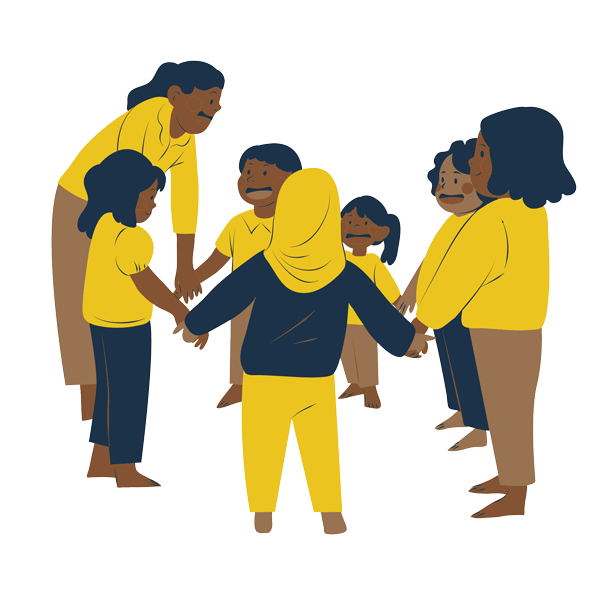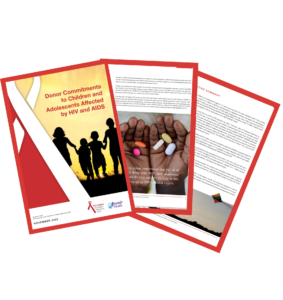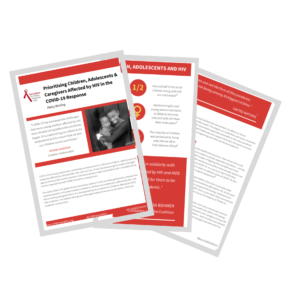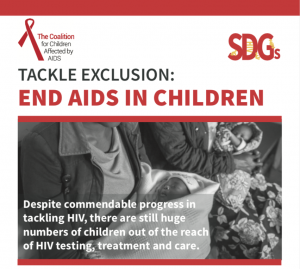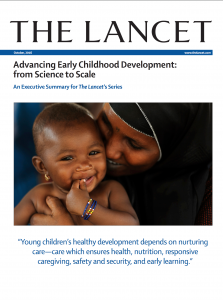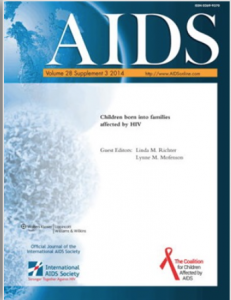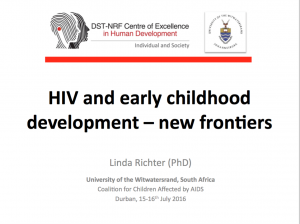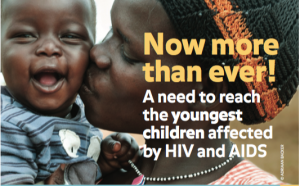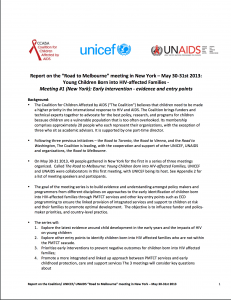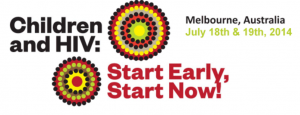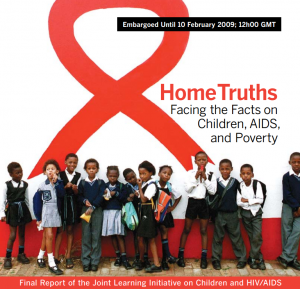The number of new HIV infections among children is more than eight times the global target. Two fifths of all children born with HIV go undiagnosed and half are not treated. And while children represent only 5% of people living with HIV, they account for 15% of AIDS-related deaths. These and other grim statistics in the UNAIDS 2022 Global Update put in stark relief just how far behind the targets we are. The Coalition has launched a new report that identifies how much is spent on children and adolescents affected by HIV and what action we can all take to achieve the Sustainable Development Goals and end AIDS. Read the report here.
COVID-19 is having catastrophic and lasting consequences for millions of children, adolescents and caregivers affected by HIV and AIDS. The stigma, co-morbidities and socio-economic vulnerabilities associated with HIV and AIDS, leave them especially vulnerable to the new pandemic and its impacts. Lock downs have curtailed livelihoods and the support they rely on in order to survive and thrive. We have published a new Policy Briefing calling for action now to prevent those already made vulnerable by HIV and AIDS from being further impacted; and so as not lose precious gains made against HIV. Read the COVID-19 Policy Briefing now.
Despite commendable progress in tackling HIV, there are still huge numbers of children out of the reach of HIV testing, treatment and care. Tackling the exclusion of these children is fundamental to achieving HIV targets. The Coalition for Children Affected by AIDS is calling for differentiated service delivery models, including broader social and economic support, to ensure that all children affected by HIV/AIDS can be tested, treated and cared for. This brief, launched at the AIDS 2018 conference in Amsterdam, highlights the priorities on which the world must focus in order to end AIDS in children.
“The 2016 Lancet Early Childhood Development Series highlights early childhood development at a time when it has been universally endorsed in the 2030 Sustainable Development Goals. This Series considers new scientific evidence for interventions, building on the findings and recommendations of previous Lancet Series on child development (2007, 2011), and proposes pathways for implementation of early childhood development at scale. The Series emphasises ‘nurturing care’, especially of children below three years of age, and multi-sectoral interventions starting with health, which can have wide reach to families and young children through health and nutrition.”
Several members of the Coalition contributed to a special issue of the journal, AIDS, focused entirely on early childhood development.
A presentation by Coalition member, Linda Richter, (PhD) University of the Witwatersrand, South Africa on unprecedented scientific opportunities that, if used to build on existing progress, could help to close remaining gaps and reach the goal of ending the AIDS epidemic by 2030.
Priority actions for early, integrated interventions to ensure that children affected by HIV and AIDS receive early integrated services to improve their long-term development.
Click here for presentations from the Coalition/UNICEF/UNAIDS “Road to Melbourne” meeting in New York, May 30-31st 2013.
In advance of the AIDS Conference in Melbourne, Australia in 2014, the Coalition hosted a Symposium on “Early intervention – evidence and entry points.” Presentations can be found here.
In advance of the AIDS Conference in Vienna in 2010, the Coalition hosted a Symposium on “Children dnd HIV: Family Support First. Click here for presentations.
This report summarizes the findings and recommendations of the Joint Learning Initiative on Children and HIV/AIDS (JLICA). The contents of the report emerge from the work of JLICA’s four Learning Groups and the contributions of all Learning Group members. Responsibility for all aspects of the report rests with JLICA. The views and recommendations expressed are not necessarily those of JLICA’s Founding Partner organizations and supporters.
